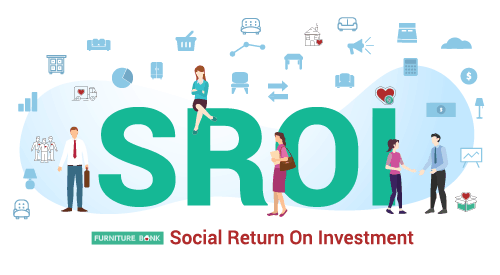3 step guide to get a donation tax receipt
We all know that donating to charity is a good thing. When you donate it helps out those who are less fortunate, it makes you feel good and it also gets you a tax credit. Whether you are looking to support a cause by making a monetary donation or a gift in-kind, this 3 step guide will help you do just that before it’s too late to save on your tax return.
1. Identify a charity
All causes are great, but you will be more comfortable giving to an organization that shares your personal values. Therefore, you’ll need to choose a charity that has an impact on what matters most to you.
In the context of tax credits, an organization must be a registered charity to produce a donation receipt. A charity will generally quantify the impact they have on their website, which can also help narrow down your choices.
Here are a few online tools that can help you identify a charity that’s right for you.
- CanadaHelps offers a useful charity search tool to sort the different organizations by category and by keyword search. CanadaHelps can even act as a payment gateway to your preferred
- charity producing a tax donation receipt upon financial donation. Access CanadaHelps Search tool.
- To dig a little deeper about a charity the Canadian Revenue Agency (CRA) has a public database to search all registered charities. Access the CRA Charity Listing.
- Other websites provide charity ratings info on U.S. based organizations or charities with an international footprint. Website such as: Charity Navigator, Give.org, Philanthropedia, GiveWell.org and GivingWhatWeCan.org.
2. Choose a tax-effective donation type
Once you have a charity in mind, it’s time to support it. There are two main donation types that can get you a donation tax credit: Financial donations and gift in-kind donations. Here is more information about those:
Financial Donation – Every registered charity should be able to produce a donation receipt for this type of donation. However, charities are not required by the CRA to emit receipt on every donation.
- Verify that the charity will issue a donation receipt for the amount you plan on donating.
- Visit the tax credit calculator on the CRA website to know more about the credit in your province.
Gifts in-kind – also known as non-cash gifts, are gifts of property. They cover items such as artwork, equipment, securities, and cultural and ecological property (Canada Revenue Agency, 2016).
- Food, clothing, furniture, house appliances, electronics, construction material, books, toys, and sport equipment are the most common in-kind donated items. Here is a link about where to donate these items.
- Shares, real estate, public traded shares, and securities are less common but can sometimes be even more tax-effective to the donor. Find out how to get the most out of gift in-kind donations in this KPMG article.
- Before bringing all your stuff to a local charity, verify that the charity accepts the items you wish to donate and that it can produce a donation receipt for the type of gift in-kind.
- If you have furniture laying around that you no longer need, for a modest fee starting at $100 we offer a professional pickup service in the GTA:
3. Claim your donation tax receipt
Claiming your tax credit is not a big deal. It’s filing out your tax return which is the boring part… But we already need to go through that anyway. The Canadian Revenue Agency requires the official receipts to claim a donation tax credit on your tax return. Make sure to keep the official receipts in your personal records.
Also, since 2013 the Federal Government implemented the “First-Time Donor’s Super Credit” in order to incite donations from Canadians who have never donated before. It basically adds 25% to the federal charitable tax credit for eligible donors. Find out more about it in this publication from Imagine Canada
Here are other useful guides you can find on the CRA website:






